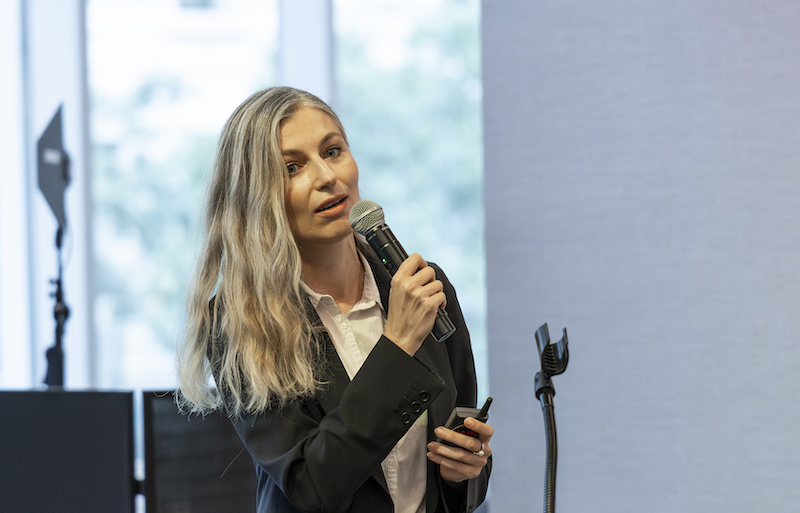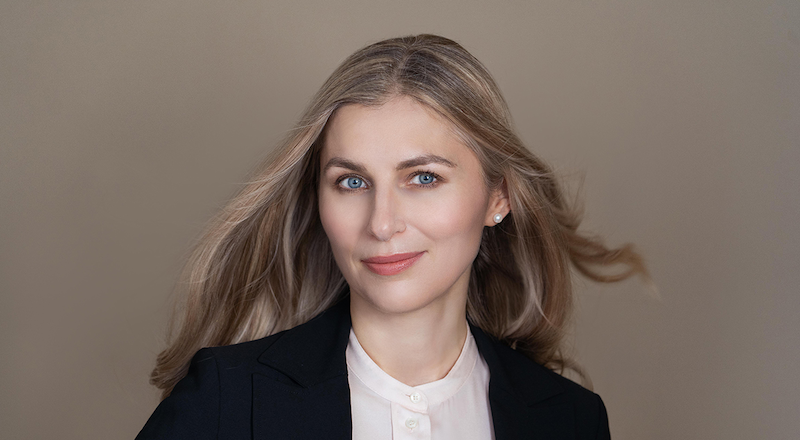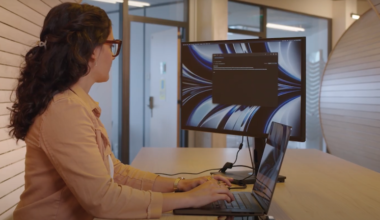Katya Stelmakh, founder of the immigration law firm Stelmakh and Associates, first came to the U.S. at the age of 19.
Her journey to becoming a top immigration attorney for international startups began in Belarus. Katya received the Freedom Support Act Exchange Scholarship funded by the U.S. Department of State, an initiative to foster democracy in post-Soviet states.
Her interest in human rights and international law deepened at Ohio State University, where she took law school courses.
The terms of her visa required her to return home for two years, a rule enforced by the Department of State to ensure that students would help build democracy back in their home countries.
As recent events in Belarus have shown, that mission is difficult.
“Democracy is a rare exception, not the norm,” Katya said. ”The peaceful transfer of power, where a president willingly steps down, is worth protecting.”
A pivotal decision
While back home in Minsk, Katya faced another hurdle. She applied and was accepted into the master’s program at several top U.S. universities, but financial barriers loomed large.
“I got into every program, but no one offered me financial aid,” she said bachelorarbeit ghostwriter für studierende. “So there I was, in Minsk, where my parents were earning $200 per month, and I was receiving all these admission letters from New York University, University of Michigan, inviting me to come, with tuition costing $50,000 a year hilfe bei der bachelorarbeit mehr über ghostwriting in deutschland.”
Fortunately, a friend at Ohio State University advised her to secure a teaching assistant position at the Slavic Department that would partially waive tuition. Her tenacity paid off, and she successfully juggled a double degree while teaching undergrad students.
As Katya neared graduation, she found herself at a crossroads. She had two offers: a junior consultant role at the World Bank and a position at a boutique firm representing high-profile business tycoons in commercial litigation disputes.
While her passion leaned toward human rights and international law, practicality won.
“I wouldn’t get attorney experience at the World Bank, and I didn’t have a green card at the time,” she says. “So I opted for a more traditional associate attorney role.” Katya chose the law firm, where she quickly gained experience in international arbitration and commercial disputes in U.S. federal courts.
During this time, she first dabbled in immigration law, assisting with petitions for her firm’s clients.
“I felt immigration law was something that came easily to me, as an immigrant who was on all kinds of visas herself,” she says. This realization would set the stage for the next phase of her career.
Shifting gears to immigration law
Katya met her future husband while they were both studying at Ohio State University, but their careers led them to live in different cities. After two years of long-distance marriage, she finally moved to the San Francisco Bay Area to join her husband, who worked at the semiconductor company and was later accepted into the MBA program at Wharton.
In the Bay Area, she decided to fully transition into immigration law, a field she could practice across state lines. She founded her law firm, Stelmakh & Associates, and started assisting entrepreneurs and small tech companies with work visa petitions. After five years in Philadelphia, the family moved to Seattle, where Katya’s husband got a job at Amazon.
“I nearly burned out at this point,” she admits, “juggling two kids and working around the clock to support my clients.”
Her big break came when she met a mentor at the American Immigration Lawyers Association (AILA) conference who taught her how to run her practice more efficiently and roll the business.
“She told me — you need a full-time assistant,” Katya recalls, “and you need to automate.” Once Katya started hiring help, her practice quickly transformed.
One year ago, with her husband leaving the corporate world to support the business full-time, Katya’s immigration practice flourished.
“Now we have 12 employees, and my husband leveraged his Wharton MBA and experience in top tech companies, such as Microsoft, to grow our business,” she says.
Becoming the go-to attorney for international startups
In 2020, Katya received a call from a recruiter at Legalpad, an immigration services startup later acquired by HR platform Deel. They were looking for an experienced immigration attorney specializing in O-1 and EB-1 cases for entrepreneurs.
This consulting contract proved to be a game-changer. Katya has advised many tech founders and her reputation has grown through word of mouth. “There’s a big word-of-mouth network in the startup world,” she explains.

As the startup ecosystem recommended her to peers, Katya’s business expanded rapidly. Today, her firm helps entrepreneurs across industries, from tech founders to e-commerce professionals, navigate the complex U.S. immigration system.
“We currently have a niche — figuring out how to help entrepreneurs immigrate to America and determining the best visa options for them,” she says.
Her expertise in technology-related immigration cases, particularly for senior-level employees at companies like Google, Amazon, Meta, and Microsoft, has made her a trusted name in the industry.
Stelmakh & Associates report a nearly 99% approval rate for their firm’s petitions by U.S. immigration services.
Building for the future
Looking to the future, Katya envisions continued growth for her firm.
“We have the ambitious goal of continuing to double our revenue and team size every year,” she says, attributing much of her success to her mindset and focus on planning. “I started following the law of attraction, and I’ve realized that anything can become a reality if you envision it, plan it, and work toward it.”
Today, Katya’s firm operates globally, with remote employees in countries like Mexico, Spain, and Nicaragua. She has streamlined processes by leveraging cutting-edge technology. The team of Stelmakh & Associates utilizes AI-driven tools for business immigration.
“The AI hype is real — those who adopt it will be ahead,” she says.
She has also consistently supported comprehensive immigration reform, a topic long debated in Congress. In 2013, she joined an initiative alongside fellow AILA lawyers in Philadelphia.
She met with senators on Capital Hill to advocate for the reform when it was up for a vote. Under Obama, a bipartisan group of four Republican and four Democratic senators proposed the promising bill, but it died when it came to a vote.
For Katya, the path to success is not just about legal expertise — it’s also about understanding the bigger picture and building a future where international entrepreneurs can thrive.
“I want to help my clients because I can easily put myself in the shoes of people who need this visa,” she said.
DISCLAIMER: The Vertical’s event International innovators meet U.S. Capital was sponsored by Stelmakh & Associates.








